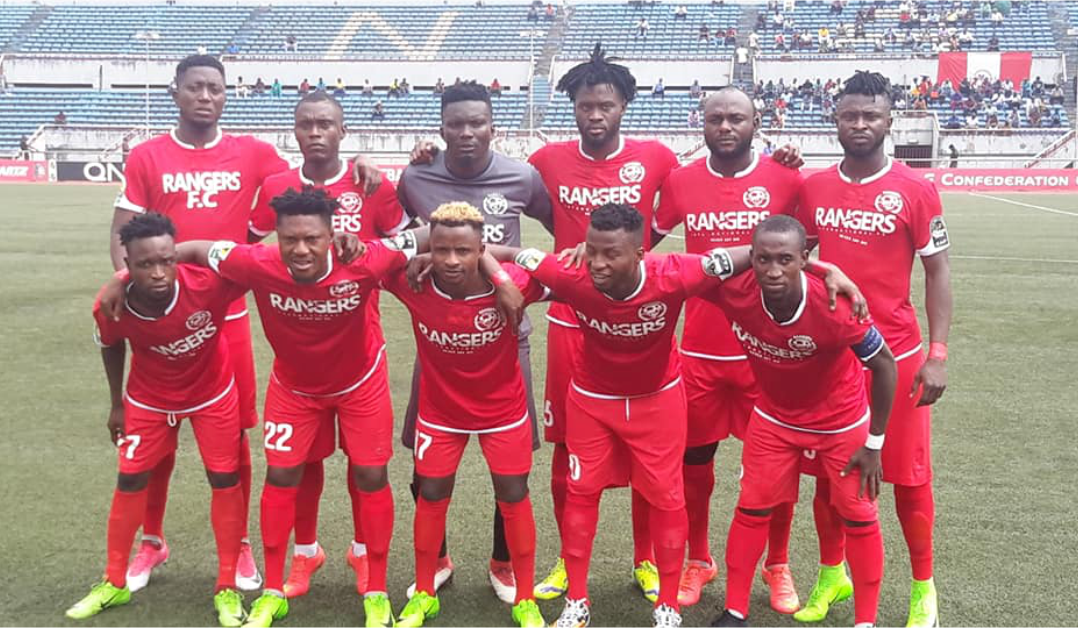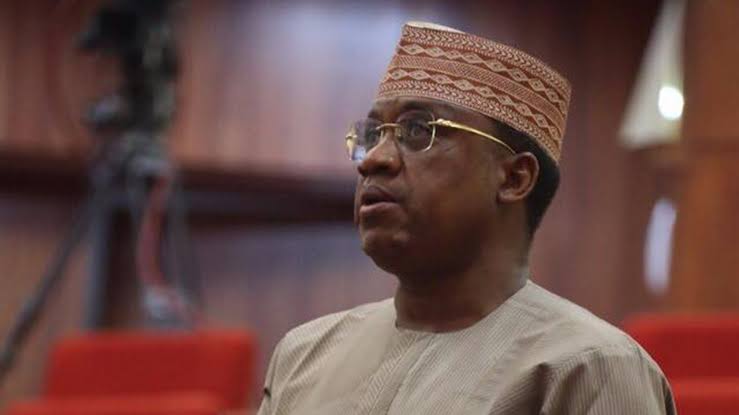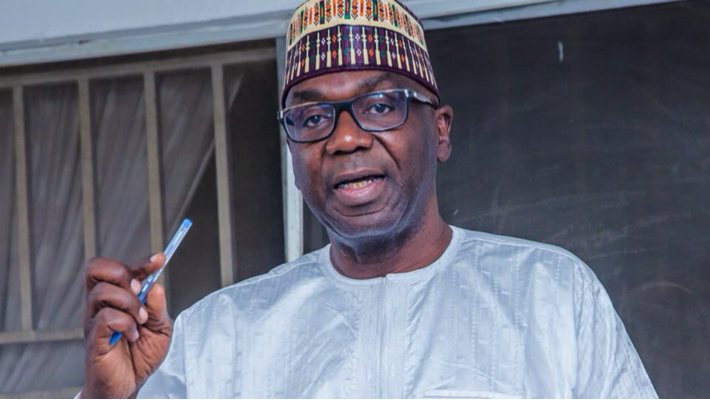Enugu Rangers International and the allure of soft power

“It was as if the football club wanted to regain through football what the Igbo ‘lost’ during the war.”
Nearly every Nigerian who was alive then remembers where they were at the end of 1976 when Alyufusalam Rocks met Enugu Rangers International in the finals of what was then known as the Challenge (Football Association) Cup.
With a history going back to the Governor’s Cup, the first finals of which took place on 7 November 1945, the Challenge Cup was the premier knock-out competition in Nigerian football. Although strictly inferior to the football league, the win-or-go-home traditions of the Challenge Cup captured the public imagination in a way that the league did not.
The teams involved embodied the hopes not merely of players but, even more, of the parts of Nigeria from where they came. Writing on the contagion effect of the nationwide passion for the Challenge Cup in his History of Football in Nigeria, Wiebe Boer observes that “there is hardly a man, woman or child in the whole country who has not been, in some way or another, connected with the magic of the ‘silver pot.’”
With their base in Ilorin, Kwara State, until then not exactly a byword for soccer excellence in the country, the Rocks were a new phenomenon in Nigerian football. They had momentum on their side having eliminated more established names on their way to the finals. Rangers went into the finals with low morale having just lost in the semi-finals of the African Cup of Champion Clubs competition to Algeria’s Moloudia Chalia.
As Nigeria sundered into war in 1967, the Challenge Cup took a back seat. Until then, no team had managed to establish sustained dominance over the football scene in the country. All that was to change after the war with the emergence of a new phenomenon, until then unknown in Nigerian football.
Five days after the end of the Civil War, around January 20, 1970, two young men separately walked into the office in Enugu of Jerry Enyeazu, the Germany-trained graduate in physical and health education who would emerge after the war as the leading sports administrator of his generation in the region.
They were Godwin Achebe and Dominic Nwobodo. Achebe and Nwobodo were survivors from a talented bunch of young footballers and athletes lost to the war. That meeting inspired the idea of a football club, about the only enterprise left to a region whose journey of recovery looked impossible.
Towards the end of the war, as the Biafran side was depleted in morale and materiale and began to consider options for mobile warfare, Timothy Onwuatuegwu, a Major in the Biafran Army, assembled a collection of young men who were supposed to undertake operations behind enemy defences. Initially known as the “Strike” or “S Force”, survivors from this squad formed the core of what became Rangers International. The team made Enugu its home in the capital of the then East Central State, becoming known as “Enugu Rangers International” with the pay-off line was “never say die!”
Four months after their formation, on 30 May 1970, Enugu Rangers played their first match. On that date three years earlier, then Military Governor of the Eastern Region, Emeka Odumegwu-Ojukwu, a Lieutenant-Colonel in the Nigerian Army, had proclaimed Biafra into being.
Military Head of State Yakubu Gowon took notice, and so did Ukpabi Asika, then the Governor in Enugu. Jerry Enyeazu managed to avoid a charge of treason on the accusation that he had organised the match to mark the anniversary of Biafra. He explained it as a coincidence. Into these trying circumstances, Enugu Rangers was born.
Within three years, the Club was a mainstay of Nigeria’s gold-winning team in the football event at the All Africa Games in 1973. In 1974, the Club won the Challenge Cup. They retained it in 1975. This was the context going into the finals in 1976. If Rangers won, they would achieve the unprecedented feat of winning the cup thrice in a row and for keeps.
In those days, Nigeria had an energetic football ecosystem. Introduced into the country by European missionaries, football had arrested the passions of the country by the time Nigeria gained Independence in 1960. Dr Boer credits it with “a huge impact on creating community spirit and interaction across the length and breadth” of Nigeria. The 1960 edition of the Challenge Cup drew 80 teams from all over the country, each channelling the hopes of their communities.
Teams carried their origins with pride. Mighty Jets of Jos; Raccah Rovers of Kano; Niger Tornadoes of Minna; Stationery Stores of Lagos; Sharks of Port Harcourt; Bendel Insurance of Benin; IICC Shooting Stars of Ibadan; Calabar Rovers; Spartans of Owerri; Enyimba of Aba; Vasco da Gama of Enugu.
Companies invested in football teams to uplift their host communities and offer young men redemption. The Defence Industries Corporation inspired the DIC Bees of Kaduna, where the company was based. Benue Cement Company gave birth to BCC Lions of Gboko. The New Nigeria Bank sired an eponymous football club in Benin, offering fierce competition to Bendel Insurance.
African Continental Bank, originally founded by Nigeria’s first president, Nnamdi Azikiwe, himself an accomplished sportsman, equally funded an eponymous football club at its headquarters in Lagos. Moshood Abiola, the leading businessman of his day, founded Abiola Babes in his hometown, Abeokuta.
Enugu Rangers was different, however. They represented the hopes of a people in search of dignity. They travelled across the country carrying the hopes of recovering Igbo communities who unleashed songs in praise and thanksgiving for the club’s accomplishments. They also had a unique brand-builder in Ernest Okonkwo, then the leading sports journalist and football commentator in the Federal Radio Corporation of Nigeria (FRCN), who made urban legends of the exploits of the club and its leading players, ensuring that they were etched in the consciousness of the country.
Okonkwo was the commentator on that day in 1976 when Rangers International became the first team to win the Challenge Cup thrice by a two-goal margin, conceding none. The following year, the team won the African Cup Winners Cup, beating IICC Shooting Stars in the semi-finals. Seven years after the war, a team of young men whose future was at best uncertain were at the seat of power in Lagos to present their African diadem to the country led by the man who ended the war. It was a script that the authors of “no victor; no vanquished” could not have imagined.
In 1979, Jim Nwobodo, the teacher-turned-impresario, parlayed his credentials as Chairman of Enugu Rangers into a successful run as Governor of Anambra State. He would later testify that “Rangers FC was the key tool in the final process of our people’s rehabilitation, reconstruction, and return to Nigeria.” Ugochukwu Ekemezie, who studied the club in a dissertation at the University of Windsor in Canada in 2022, agreed.
In 1980, Nigeria’s Green Eagles became kings of African football with a backbone from the Rangers International and IICC. To crown it all, the songs that serenaded the Green Eagles on their way to victory were nearly all originally coined in support of the Rangers on their march to football conquest of the country. Nigeria had willingly learnt to commit them to heart and sing them too in Igbo.
Where the violence of the war had failed, the soft power of the indomitable spirit of Rangers International had persuaded Nigeria into a love affair with their origins.
Today, that spirit of constructive competition between communities on the back of which the legend of Enugu Rangers International was forged lies in ruins. Companies and ambitious men willing to invest in the healing power of sports have been replaced mostly by buccaneers. Instead of devastated young men being channelled into the glory of sports excellence or communities into reconstruction, we have now accomplished young men addicted to destruction and communities living in devastation.
Remarkably, Rangers International still exists, and many of those men who inspired a people and a country nearly half a century ago continue to “never say die!”
A lawyer & a teacher, Odinkalu can be reached at chidi.odinkalu@tufts.edu
We have recently deactivated our website's comment provider in favour of other channels of distribution and commentary. We encourage you to join the conversation on our stories via our Facebook, Twitter and other social media pages.
More from Peoples Gazette

Politics
Katsina youths pledge to deliver over 2 million votes to Atiku
“Katsina State is Atiku’s political base because it is his second home.”

World
Tesla announces 55% profit; 9% revenue drop for first quarter of 2024
The financial outcome is due to slow sales of Tesla cars.

Education
National Library seeks increased govt funding to promote reading culture in schools
Ms Okeke stressed the transformative power of reading and its role in personal growth and success.

NationWide
Group tackles northern elders, Marafa over ‘blind’ opposition to Tinubu’s govt
The forum said those dreaming of whipping up sentiments to derail the Tinubu administration would fail.

Economy
MTN records highest number of subscribers porting to other networks
The analysis also revealed that EMTS recorded 676,944 port-ins.

Faith
Abdulrazaq appoints Oloriegbe as Kwara Ameerul-Hajj for 2024
The government relied on the senator to use his knowledge and understanding to improve coordination and efficiency for the exercise.

World
Body of man acquitted of drunk driving brews alcohol in rare medical condition
Ms Ghesquiere said in another unfortunate coincidence, her client works at a brewery.








